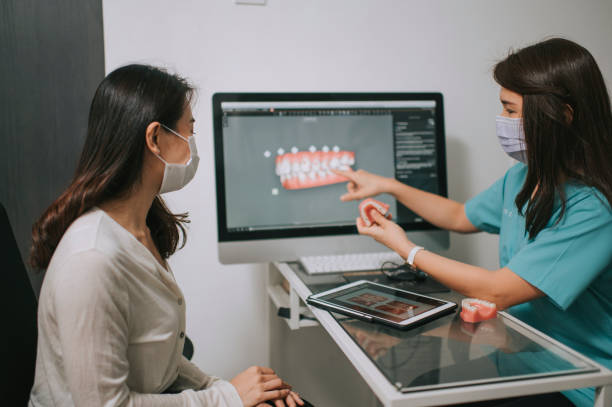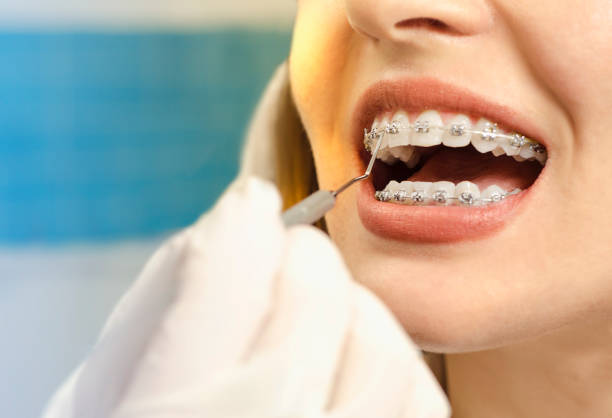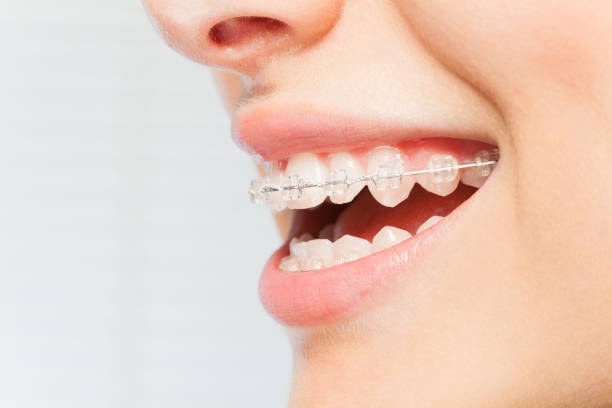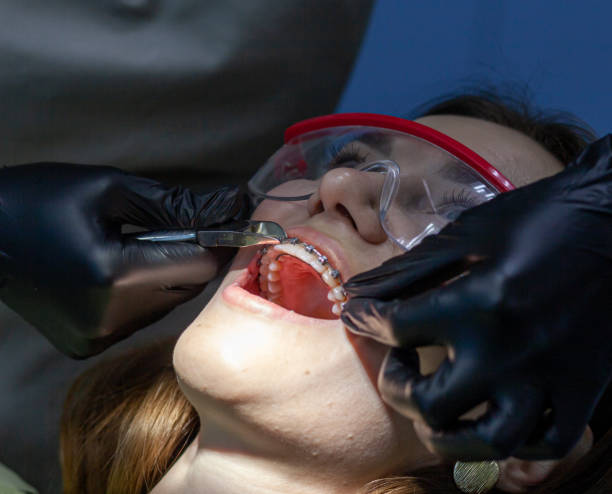Details
Achieve A Perfect Smile With Our Braces Treatment
At Smile Delight, we uphold the transformative potential of a radiant, self-assured smile. This is why we advocate for braces, a tried-and-true method for achieving beautifully aligned teeth. Our seasoned orthodontists utilize top-tier materials, ensuring optimal care and outcomes.Situated in Kepong, Malaysia, our clinic boasts cutting-edge dental technology, guaranteeing superior care. We are committed to making our services inclusive and economical, presenting a range of payment options tailored to your preferences.
Understanding Dental Braces
1. What Are Dental Braces?Dental braces are orthodontic devices used to correct and align teeth and help to position them concerning a person’s bite, improving dental health. They are often used to correct underbites, overbites, open bites, deep bites, crossbites, crooked teeth, and various other issues
2. What Is The Cost Of Braces?
The cost of braces can vary significantly depending on the type of braces (metal, ceramic, lingual, or invisible), the complexity of the case, and the duration of the treatment. At Smile Delight Dental Clinic, we provide a detailed cost estimate after a thorough evaluation during your consultation.
3. How Long Do I Need To Put On Braces?
The duration for wearing braces largely depends on the complexity of your case and the type of braces you have. On average, patients typically wear braces for about 18 months to 2 years. However, some cases may require a shorter or longer period.
4. Why Do I Need Braces?
Braces are typically required to correct malocclusion (misaligned teeth) which could be causing issues such as difficulty in cleaning teeth, leading to oral health issues like tooth decay and gum disease. Additionally, braces can also help improve your appearance by aligning your teeth and giving you a confident smile.
5. Can I Eat When Having Braces On?
Yes, you can eat when you have braces on, but you’ll need to avoid certain types of food that can damage your braces. This includes hard, crunchy, and sticky foods. It’s also best to cut your food into small pieces to avoid putting too much pressure on your braces.
6. Bad Breath When Having Braces?
Braces can trap food particles, which if not cleaned properly, can cause bad breath. It’s important to maintain good oral hygiene, which includes brushing after every meal, flossing daily, and using a mouthwash. Regular visits to your orthodontist or dentist for cleaning can also help manage bad breath.
Types Of Braces In Smile Delight Dental Clinic
While traditional metal braces remain a proven and effective method for teeth straightening, we acknowledge that they might not suit everyone's preferences. At Smile Delight, we provide a variety of alternatives to metal braces, tailored to address the individual needs and desires of our patients.The Process of Getting Braces Involves Several Steps
 Consultation
ConsultationDuring your initial consultation, our orthodontist will assess your teeth and discuss your treatment goals.
 Application
ApplicationThe braces will be carefully attached to your teeth using a special dental adhesive.
 Adjustment
AdjustmentRegular follow-up appointments will be scheduled for adjustments to gradually move your teeth into the desired position.
 Removal
RemovalOnce the treatment is complete, the braces will be removed to reveal your new, straight smile.
FAQs About Braces Treatment
1. Who needs braces?
Braces are typically recommended for individuals with crooked or misaligned teeth, overcrowded teeth, gaps between teeth, or bite problems such as overbite, underbite, crossbite, or open bite. An orthodontic evaluation will determine if braces are necessary based on your specific dental needs.
2. How long do I need to wear braces?
The duration of orthodontic treatment with braces varies depending on the severity of the dental issues and individual factors. On average, treatment can range from several months to a few years.
3. Does getting braces hurt?
Initially, there may be some discomfort or pressure when braces are first placed and after adjustments. This discomfort typically subsides within a few days. Over-the-counter pain relievers can help manage any discomfort.
4. How do I take care of braces?
- Brush your teeth thoroughly after every meal and snack to remove food particles and plaque.
- Use a fluoride toothpaste and a soft-bristled toothbrush.
- Floss daily with special orthodontic floss or use a floss threader to clean between braces and under wires.
- Avoid sticky, hard, or crunchy foods that can damage braces.
5. Can I still play sports or musical instruments with braces?
Yes, you can play sports and musical instruments with braces. It's important to wear a mouthguard for contact sports to protect your braces and teeth. For musical instruments, some adjustment may be needed initially, but most people adapt quickly.
6. Will braces affect my speech?
Initially, you may notice some changes in speech as your tongue adjusts to the presence of braces. With practice and time, speech usually returns to normal as you become accustomed to wearing braces.
7. What happens after braces are removed?
After braces are removed, you will likely need to wear a retainer to help maintain the new position of your teeth. Retainers may be removable or fixed (bonded behind your teeth).
8. What are the benefits of braces?
- Improved dental aesthetics and smile confidence.
- Better oral hygiene and reduced risk of dental problems such as decay and gum disease.
- Enhanced chewing and speech function.
- Correction of bite alignment issues, which can alleviate jaw pain and discomfort.
These FAQs provide a general overview of braces and what to expect during orthodontic treatment. Your orthodontist will provide personalized guidance based on your specific dental needs and treatment plan.
View more about Braces on main site




.jpg)
.jpg)
.jpg)